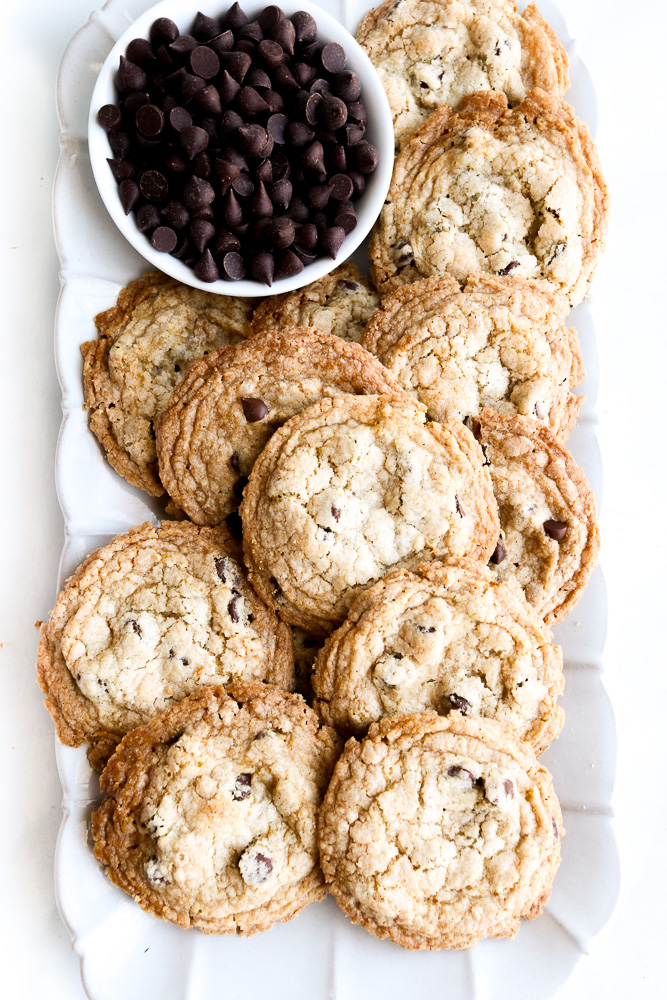

This study demonstrates that the inhalation of dust from spices can result in an IgE-mediated allergy toward these materials.Īnaphylaxis possibly due to the ingestion of curry Leukocytes from a normal donor, after passive sensitization with serum from patient M, released a substantial (?50%) amount of histamine on challenge with extracts of coriander, mace, and curry powder.

It could be demonstrated by RAST inhibition that the IgE-binding components from coriander did not cross-react with the IgE-binding components from ginger and paprika. With RAST, specific IgE antibodies against coriander, curry, mace, ginger, and paprika powder could be demonstrated in serum from patient M.
Breaktime ginger cookies allergy skin#
Skin prick test results with curry, coriander, and mace were strongly positive. Patient M, working with spices in the food industry, developed asthma on inhalation of dust from spices. "Immunoglobulin E antibodies against coriander and other spices." Journal of allergy and clinical immunology 76.3 (1985): 477-481.

Van Toorenenbergen, Albert W., and Paul H. "Allergic contact dermatitis from topical Chinese herbal medicine and generalized urticaria and angioedema."

These results suggest that the botanically related spices, coriander, anise and dill, contain common IgE-binding structures. After incubation of SDS-PAGE-separated spice extracts with serum from a patient with an occupational allergy to spices, a closely related pattern of IgE binding to coriander, dill and anise extract was observed. A major IgE-binding component from coriander had an isoelectric point of pH5. The IgE response to coriander and other spices was studied by immunoblotting, after separation of the spice extracts by isoelectric focusing and sodium dodecyl sulfate-polyacrylamide gel electrophoresis (SDS-PAGE). "Immunoblot analysis of IgE-binding antigens in spices." International Archives of Allergy and Immunology 86.1 (1988): 117-120. Your second question addressed a one month antihistamine therapy for acquired food allergy and I am not aware of such a treatment approach. Whether the allergen is ginger or another ingredient should be considered. However, the symptoms are highly suggestive and in light of the complex mixtures of substances I suspect there is an allergen responsible. Allergy does require documentation of an immunologic response, which in your case we have not established. In summary, allergy can occur with negative skin and in vitro tests due to multiple mechanisms of immunologic response and difficulties in obtaining the most appropriate testing reagent. I believe this treatment approach may place your patient at significant risk. I would be very skeptical that this would have any value as antihistamine therapy does not usually prevent systemic IgE mediated reactions as mast cells release many factors other than histamine. I am not sure if you are referring to antihistamine therapy to suppress symptoms to allow ingestion and the development of tolerance. I am not aware of a “one month antihistamine treatment” for such allergy. Spices do show some cross reactivity (see abstracts and references below) but the clinical significance of these findings are difficult to confirm as allergy to spices is rare.Ĭertainly testing does not have a 100% negative predictive value as foods are modified by digestion and I do not know if you tested with fresh or processed ginger. I would try to obtain the exact components of the ginger juice and the curry to which he reacted to see if you could identify a common agent. The combination of reactions to two complex mixtures would make me suspicious of a common ingredient. Curry, which includes curry powder or spice, is also a complex mixture of ingredients with great variability (see Ask The Expert question from archives). If his in vitro IgE and prick skin test to ginger is negative, I would be concerned that another ingredient is responsible for his acute symptoms, especially since he is also having symptoms with curry. It would be helpful to know the specific ingredients in the “ginger” juice your patient was drinking. Ginger juice is a term used for a variety of drinks that contain multiple ingredients in addition to ginger.


 0 kommentar(er)
0 kommentar(er)
